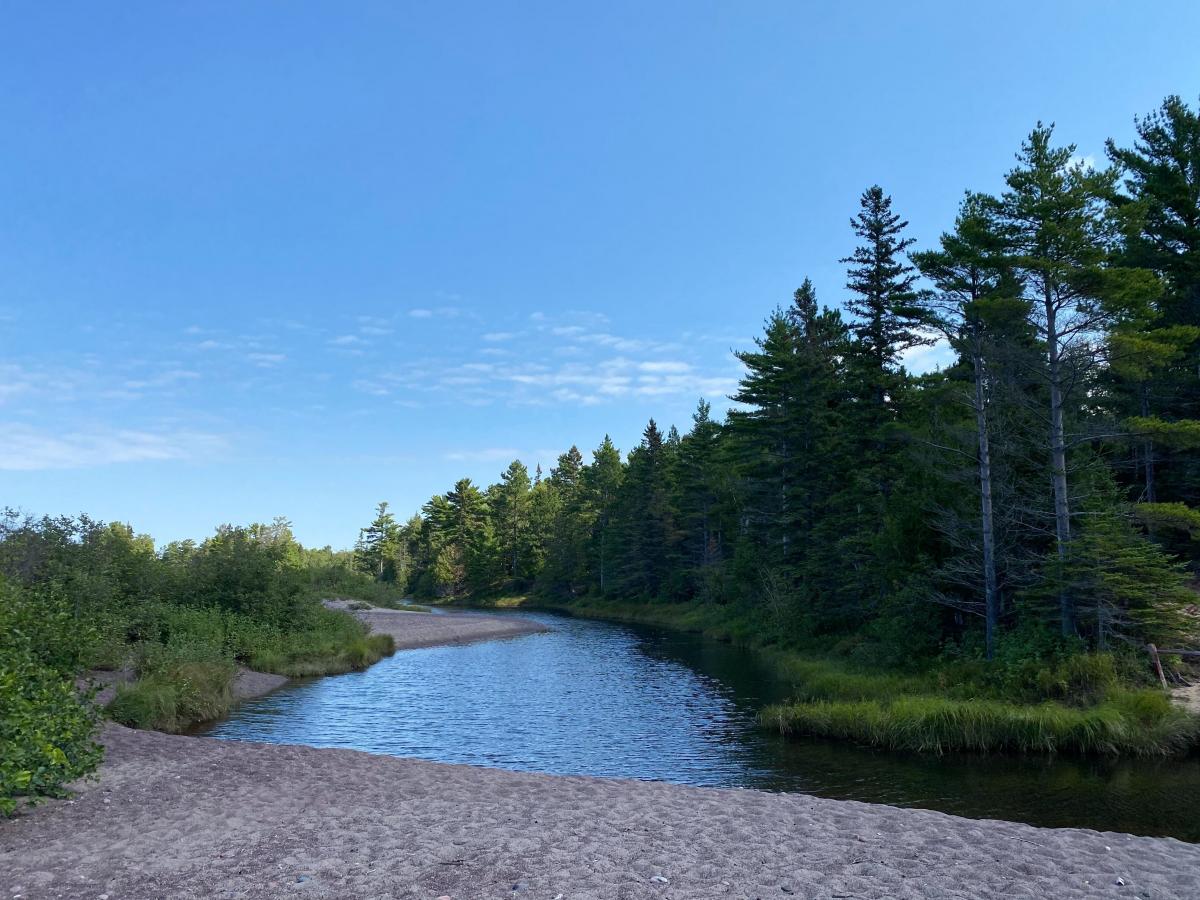
Coastal ecosystems serve unique ecological functions and provide critical services and defense for coastal human communities.
Coastal wetlands and estuaries, rivers, rocky and sandy shorelines, and coastal forests are experiencing many direct and indirect effects of climate change. Water level changes, increased storm events, flooding, shoreline erosion, and warmer waters are all affecting these important ecosystems. Natural resources professionals can take action now to help coastal systems adapt to a changing climate, while also providing important benefits for coastal human communities.
Adaptation in Action
Coastal ecosystems will require special management considerations in a changing climate given their unique ecological functions and their role as a critical defense for coastal human communities.
Through a collaboration with the U.S. Fish and Wildlife Service and regional partners, we have developed a menu of adaptation strategies and approaches focused on Great Lakes coastal ecosystems. We developed this document to support natural resource managers in taking action on climate change in project-specific planning activities. The menu is designed to be used with the Adaptation Workbook to make Great Lakes coastal management plans more robust to changing conditions. A final version was published summer of 2022 via the USDA Northern Forests Climate Hub.
The Great Lakes coastal ecosystems menu is based on the approach outlined in Forest Adaptation Resources: Climate Change Tools and Approaches for Land Managers.
Download Strategies for Adapting Great Lakes Coastal Ecosystems to Climate Change
Real-world adaptation demonstration projects:
We used a working draft to test the application of the menu with three real-world coastal management projects in the Great Lakes. We used feedback from the project teams to refine the strategies and approaches in the final publication.
- Apostle Islands National Lakeshore: Coastal wetland vulnerability and adaptation
- Ford Cove: Shoreline and Coastal Wetland Restoration Project
- Multiple Organizations: Allouez Bay Marsh Bird Habitat Restoration Planning
Contact Danielle Shannon to learn more about our work in coastal ecosystems

Collaborating on coastal adaptation
The US Fish and Wildlife Service and NIACS worked with a team of regional experts to develop the Strategies for Adapting Great Lakes Ecosystems to Climate Change.
We have also developed a draft saltwater coastal ecosystems menu, which has received input from stewardship coordinators with the National Estuarine Research Reserves and others. Please contact us if you want to learn more about using these tools with a real-world management project, or check our trainings page to view upcoming training opportunities.
Contact Danielle Shannon to learn more about our work in coastal ecosystems
Work with Us
We offer assistance on adaptation projects for groups that are managing forests, forested watersheds, and wetlands, and Great Lakes coastal ecosystems, among other focus areas. Examples of our work include:
- Leading climate change adaptation workshops.
- Creating tools to assist with adapting coastal ecosystems to climate change.
- Developing examples of real-world climate-informed management in a variety of ecosystems.
